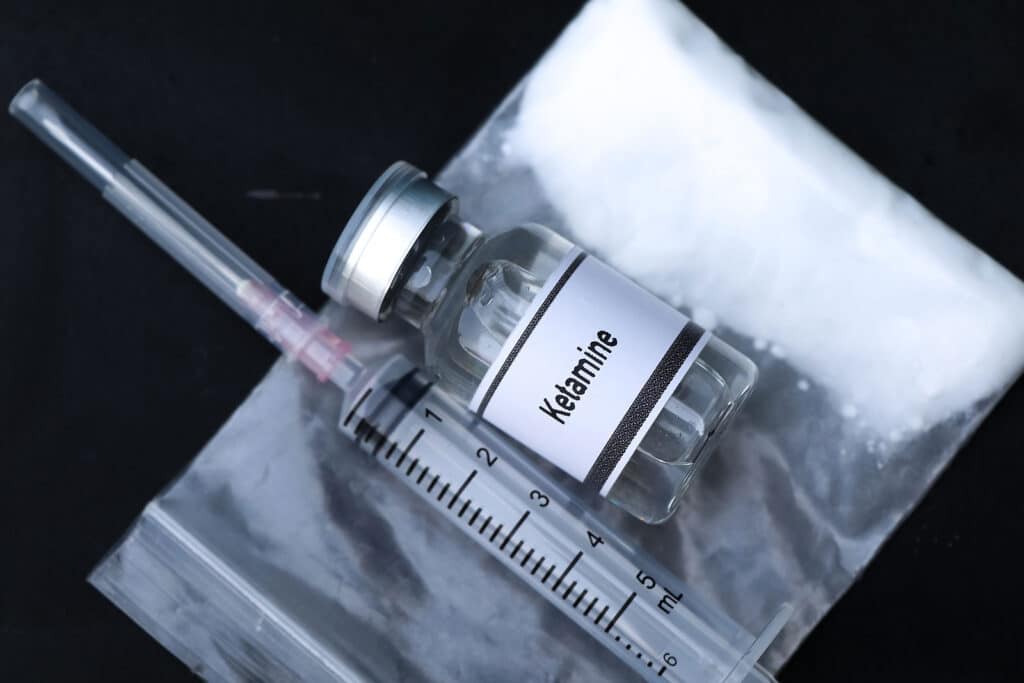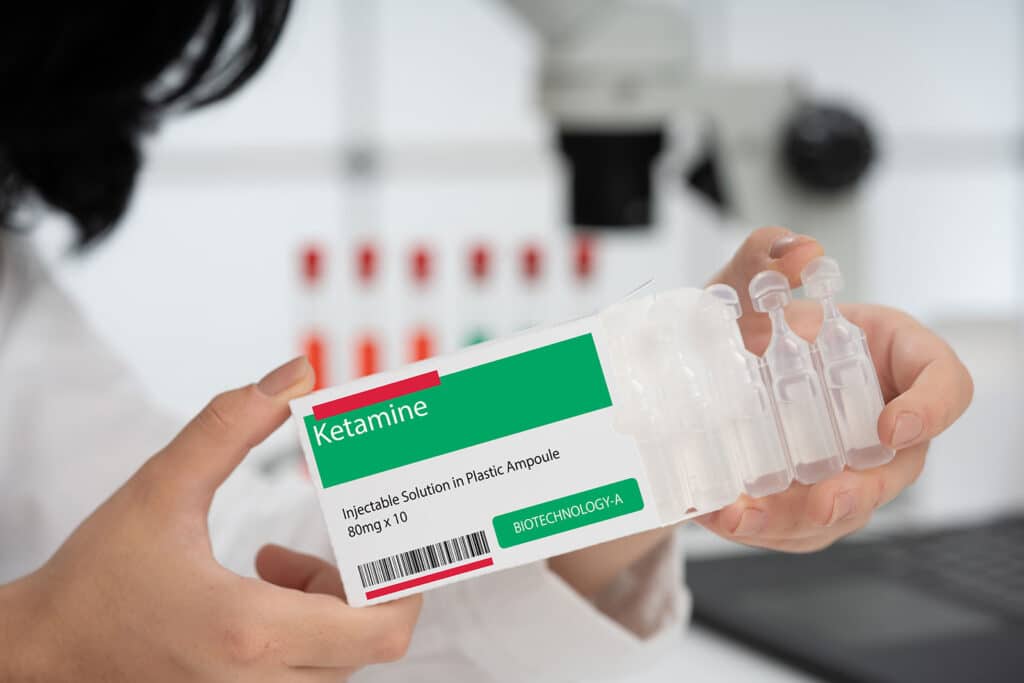The question “Is ketamine a horse tranquilizer?” is a common one, and it’s easy to see why: ketamine has a reputation as a powerful drug with diverse uses. While ketamine is indeed used in veterinary medicine, including as a tranquilizer for large animals, this represents only one aspect of its broader medical profile. Ketamine is a versatile anesthetic with applications that extend into human medicine, mental health treatment, and pain management.
Table of Contents
What is Ketamine?
Ketamine is a dissociative anesthetic that produces a trance-like state and sedation. Developed in the 1960s and widely used as a surgical anesthetic during the Vietnam War, ketamine’s anesthetic properties make it effective in both human and veterinary medicine. The drug works by blocking specific brain receptors, primarily the NMDA receptors, which play a role in pain perception, mood regulation, and cognition.

Ketamine’s Use in Veterinary Medicine: “Horse Tranquilizer” Label
Ketamine is commonly used by veterinarians for sedation and anesthesia in a variety of animals, including horses. Its effectiveness in sedating large animals has contributed to its reputation as a “horse tranquilizer.” However, this is a limited view of ketamine’s applications. In animals, ketamine provides reliable anesthesia and helps manage pain and distress during surgeries or other medical procedures. This usage has led to a misconception that ketamine’s primary function is as an animal tranquilizer, when in fact it is widely used in human medicine as well.
Ketamine in Human Medicine: From Anesthesia to Mental Health Treatment
In addition to its veterinary uses, ketamine is FDA-approved as an anesthetic for humans. It has been shown to be effective in a variety of medical contexts, including pain management and emergency sedation. Low doses of ketamine are sometimes used to manage chronic pain, and in emergency settings, it can be administered safely without significantly lowering blood pressure or heart rate, making it a unique option among anesthetics.
In recent years, ketamine has emerged as a promising treatment option for mental health conditions, particularly treatment-resistant depression and severe depression. Ketamine therapy, which involves controlled doses administered by medical professionals, is distinct from recreational use, where higher doses of ketamine may induce hallucinogenic or dissociative effects. Clinical research has demonstrated that ketamine can provide rapid relief from depression symptoms, making it a valuable tool for patients who haven’t responded to traditional antidepressants.
In 2019, the FDA approved esketamine, a nasal spray derived from ketamine, for treatment-resistant depression. This FDA-approved treatment highlights ketamine’s legitimate and growing role in mental health treatment under supervised medical guidance.
Misconceptions and Risks of Ketamine
Ketamine’s use as a “horse tranquilizer” and its association with recreational use, where it is sometimes referred to as “Special K,” has led to numerous misconceptions. At high doses, ketamine can produce intense dissociative and psychedelic effects, which has contributed to its misuse as a street drug. Recreational use can come with serious risks, including psychosis, high blood pressure, and cardiovascular effects. However, when administered in controlled, low doses by medical professionals, ketamine is generally safe and effective, with side effects like nausea, dizziness, and temporary dissociation usually manageable under medical supervision.

The Benefits and Future of Ketamine in Healthcare
As research progresses, ketamine is being recognized not only for its anesthetic properties but also for its potential as a mental health treatment. Its ability to work on receptors differently from opioids or traditional antidepressants makes it a valuable option for patients with specific needs, including those with treatment-resistant depression and chronic pain.
With ongoing studies, ketamine’s benefits in pain management and mental health continue to be explored, shedding light on its effectiveness and positioning it as a valuable therapeutic tool. When seeking medical advice about ketamine therapy or its effects, it is essential to consult healthcare providers experienced in ketamine treatments to understand its potential risks and benefits fully.
Conclusion: Ketamine’s Role in Medicine Beyond Veterinary Use
Although ketamine has been used as a tranquilizer for animals, including horses, it is far from just a “horse tranquilizer.” This versatile drug serves as an anesthetic and a valuable option for managing mental health conditions and pain in humans. Misconceptions around ketamine arise from its recreational misuse and its association with animal sedation, but under medical supervision, ketamine is a safe and effective treatment with life-changing potential for patients in need.



